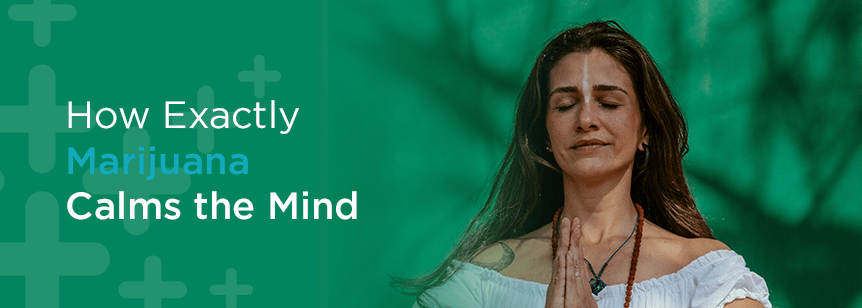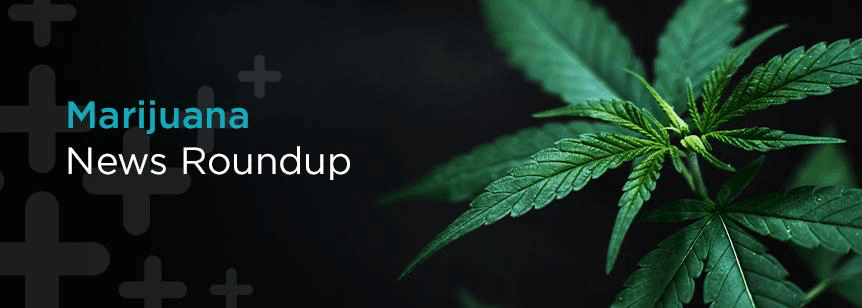Fatigue. Restlessness. Sweating. Difficulty concentrating. Racing thoughts. Excessive worry. Fear. Insomnia. Nausea. Palpitations. These are some of the symptoms experienced by the 40 million U.S. adults who suffer from anxiety.
The disorder is highly treatable, yet only a fraction of people who have it (37%, according to the Anxiety and Depression Association of America) receive treatment.
Medical marijuana is one option for some people who are currently receiving treatment for anxiety as well as those who aren’t. Here’s a look at why—and what anyone considering taking cannabis for anxiety needs to know.
Does it help or hurt?
Anxiety is one of the most common reasons people give for using medical marijuana. In one study conducted by researchers at Washington State University and elsewhere, 58% of users cited this as their reason, second only to pain (61%).
Some scientific evidence shows that the drug can help reduce anxiety—by as much as 58%, according to a study published in the Journal of Affective Disorders, with larger reductions in women than in men. But the research on this is very limited.
The picture is complicated by the fact that the governing bodies that have legalized medical marijuana (33 states, the District of Columbia, and Puerto Rico) allow it for different medical conditions—and only New Jersey and Puerto Rico include anxiety among theirs. Several states, however, have liberal laws that do not specify qualifying conditions and allow cannabis be to prescribed at a physician’s discretion. These include California, Maine, Massachusetts, Missouri, Oklahoma, Rhode Island, Virginia, and West Virginia. Most states that have legalized medical marijuana also allow it to be used in the treatment of post-traumatic stress disorder (PTSD), a type of anxiety.
How it works—and what to watch for
For those who are considering trying cannabis to relieve anxiety, what are the reasons it might possibly help? Although it’s not entirely understood, the endocannabinoid (ECS) system may be at the heart of it. Some experts consider this to be the 12th major system in the body, alongside the circulation, respiratory, digestive, and other systems.
Although understanding of the ECS is still a work in progress, it’s believed to help bring balance to the body and ensure that all the systems work together. It’s composed of cannabinoid (CB) receptors in the brain that are involved in processes ranging from coping with stress to creating memories. These receptors are also key to responding to anxiety and fear. Small doses of cannabinoids found in marijuana may interact with those receptors and help support the ECS and enhance its function—thus reducing anxiety and fear.
More research is necessary to find out more about what happens in the brain when people with anxiety consume marijuana. That research has been hindered by federal law, which considers marijuana a Schedule 1 drug with no medical benefit. Until more is known, keep this information in mind.
- The strain of cannabis matters. In the Journal of Affective Disorders study, researchers found that marijuana that’s high in cannabidiol (CBD, which does not produce a high) and low in tetrahydrocannabinol (THC, which does produce a high)—the two most common cannabis compounds—was best for reducing depression. Cannabis high in both CBD and THC was best for reducing stress. Both types were successful in reducing anxiety symptoms.
Researchers from the University of Washington note that THC appears to decrease anxiety at lower doses and increase it at higher doses—and that CBD lowers anxiety at all levels.
- The improvement may be only short term. Although the limited research that’s been done on cannabis and anxiety indicates a positive short-term effect, the long-term picture is less clear. The Journal of Affective Disorders study found that symptoms of depression (but not anxiety or stress) increased over time for study participants who used cannabis.
- It’s best to start low… Two puffs is all it took to reduce anxiety for the subjects in the Journal of Affective Disorders study.
- …and go slow. Some patients think that if a little THC is good, more must be better. But the opposite is true: Too much can actually exacerbate anxiety. THC can raise the heart rate, and high doses have been associated with panic attacks and paranoia. Feelings of dizziness, nausea, confusion, and blurred vision following cannabis use can also contribute to anxiety. Canadian researchers who have studied cannabis recommend that any addition to an initial cannabis dose should be made slowly, over the course of two weeks.
- Different people react differently. Genetics, age, sex, and body fat are among the factors that determine how someone with anxiety will react to cannabis. All the more reason to start low and go slow to gauge your response.
Andrea Barbalich, a journalist who has held top editorial positions at Meredith, Scholastic, and Rodale, writes frequently about health for RD, AARP, Health Monitor Network, and other outlets.






